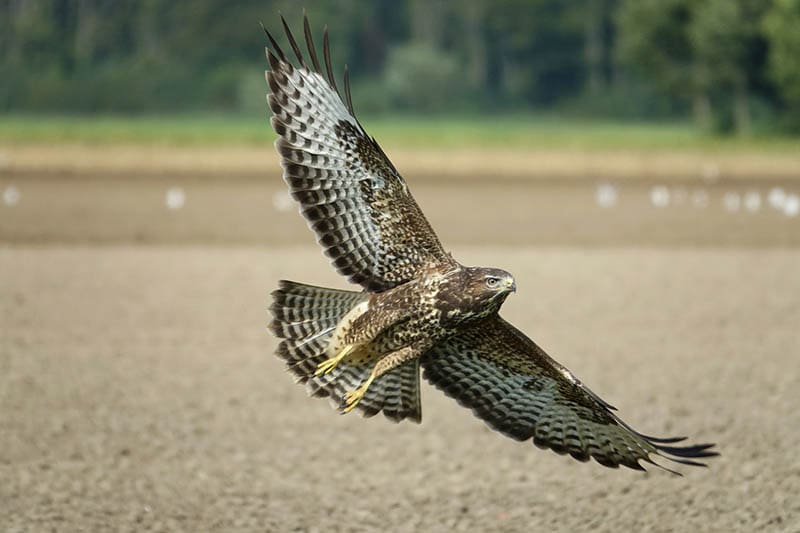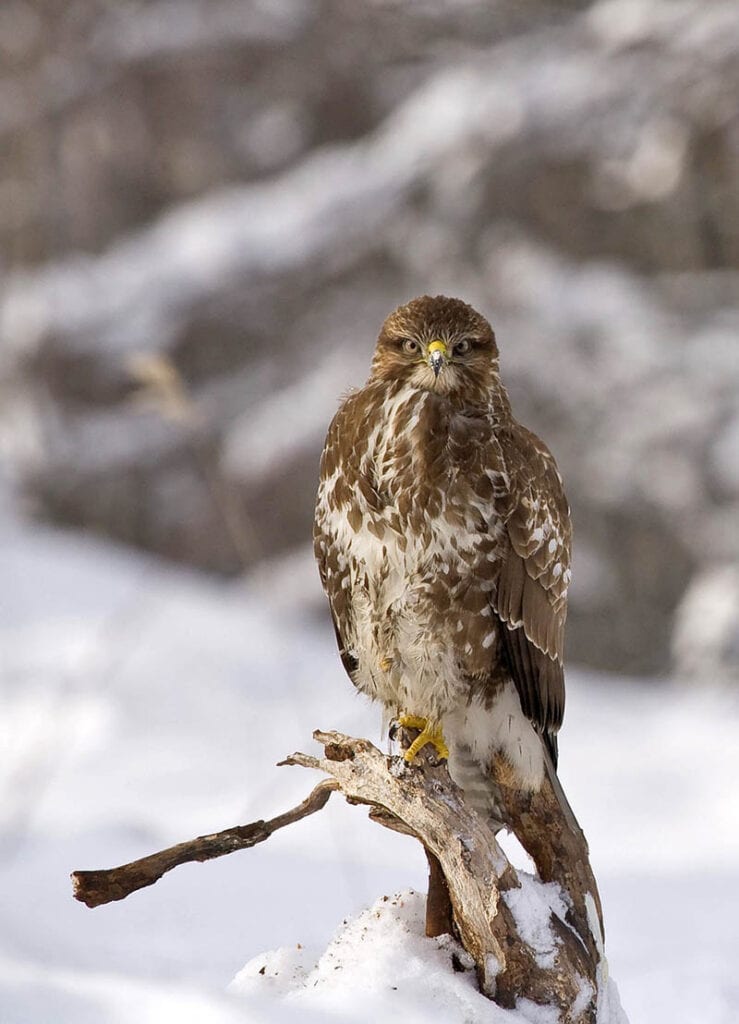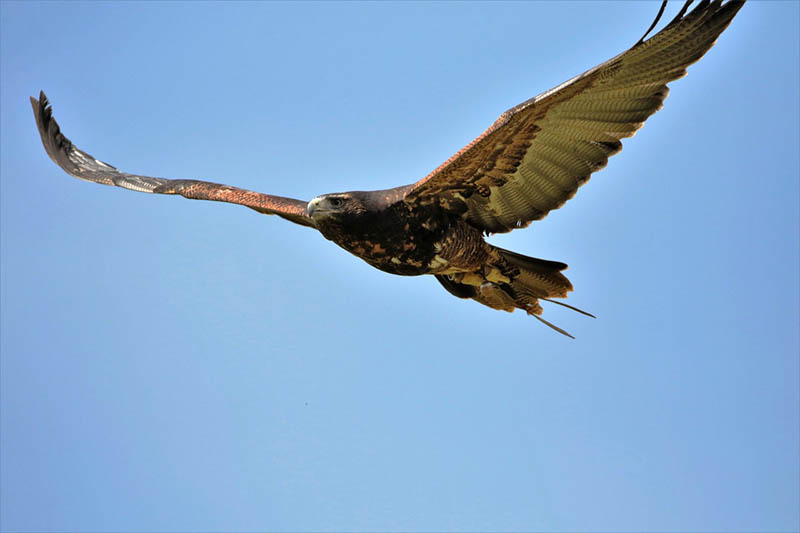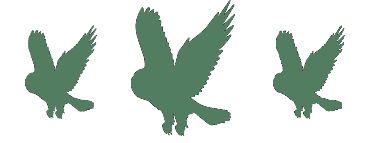Are Buzzards Dangerous to Humans or Pets? What to Know!
Last Updated on

Buzzards, turkey vultures, and hawks are used interchangeably in different parts of the world.1 These terms refer to large scavengers that circle over property or dead animals. These birds look pretty intimidating with red, wrinkly necks. Luckily, buzzards don’t harm humans or large animals.
Buzzards stay away from humans and preferably feast on dead animals. But some predators feed on rodents, amphibians, reptiles, and small insects. If you want to remove buzzards from your property, it can be tricky as you’ll need a permit.
Let’s explore more about these predators and whether they pose a threat to humans or pets.

Do Buzzards Attack Humans and Pets?
Buzzards don’t attack humans and large pets.
Like most wild animals, they prefer staying away from humans, but they perform active predation on prey weighing up to 1.5 pounds. They also take over gamebirds, making only a tiny part of their diet. These predators are likely to eat carrion. Typically, they wait for the dead body to decay before eating it for easy digestion.
Buzzards are naturally non-aggressive birds. However, they may attack you in unusual situations, especially when protecting their babies. These attacks usually happen during breeding season when they’re on high alert for potential threats.
But generally, buzzards don’t attack humans and large pets. Instead, they go for smaller animals like rats, beetles, frogs, snakes, weasels, and hares. So, if you have any such animals as pets, you need to keep them inside to protect them from these predators.

Do Buzzards Eat Anything Other Than Dead Matter?
Buzzards’ diet varies depending on the region they belong to. It’s believed that these predators can eat other things except for decaying matter.
Here are some interesting facts about a buzzard’s diet:
- They eat small animals, including crows, pigeons, amphibians, reptiles, and multiple insects.
- These predators follow three hunting methods. First, they look for prey from a distance and then attack it directly. Second, they circle over the open terrain in the wind and then attack the prey on the ground. Third, they walk or stand on the ground and search for small invertebrates.
- These birds preferably eat already dead animal remains. They circle to confirm the animal is dead and then go after it.
- Many predators prefer fresh meat, while others wait for the animal to decay or rot.
- Buzzards wait for those animals to decay that have a tough hide. Some species may have weak beaks and struggle to penetrate the animal’s skin. But if a dead animal has a soft hide, these predators don’t wait.
- Buzzards typically have poor eyesight at night. So, they mostly search for food during the day.
Knowing these facts is crucial to eliminating these birds circling over your property. If your neighborhood tends to feed buzzards, ask them to stop doing that. Doing so will make them return to your property for more and more food.

Why Do Buzzards Circle Overhead?
People mostly go inside whenever they see buzzards gathering in the trees and circling overhead. While some think the birds are planning to attack them, others go indoors out of disgust.
But the reality is that buzzards circling over your property don’t have to do anything with you. Instead, these birds circle in the sky to identify where the rotting carcasses or smaller animals are. They have a sharp sense of smell for gasses released from decaying matter that makes up most of their diet.
Do Buzzards Spread Diseases?
Buzzards have strong stomach acids that can kill rabies, cholera, and many dangerous diseases. When they clean an animal’s remains that died of an illness, their body destroys the disease in the stomach. So, buzzards don’t carry diseases.
However, that doesn’t mean they can’t spread it. If your property has too much buzzard feces, it could indirectly threaten people and pets.
Since buzzards sit on dead bacteria-containing animals, their feet and poop can carry disease-causing viruses, parasites, and fungi. So, when your pet or family member walks over these birds’ poop, they may contract diseases.
It’s better to stay at a distance from these birds. However, if your home usually has many buzzards circling, you should clean their poop regularly.

Can You Get Rid of Buzzards?
Buzzards are primarily harmless for humans and pets, but some people don’t prefer them near their houses. The main reason is their fecal droppings. But before going aggressive on these birds, remember that these predators are vulnerable birds.
With the human population increasing, these birds have to leave their natural habitats and live near humans. Also, their food sources declined when humans started to hunt animals for their food.
But if you’re in no mood to show mercy on buzzards, you still can’t hunt down these birds. They are legally protected by the 1918 Migratory Bird Treaty Act. So, no matter how much you want to move them out of your garden, you just can’t hit or scare them away with anything. However, in some instances, you can remove them.
If you have a genuine reason, you can request a Migratory Bird Depredation Permit to eliminate these predators legally. But remember that it’s not an easy process. You must invest a lot of your time and money to acquire the license. The good thing is that you can get rid of these birds without a permit. Here are some tips to remove these predators from your property:
- Install bright lights around your backyard and garden. Most buzzards try to avoid them.
- You can also install reflective surfaces in your backyard and garden.
- Observe the buzzards’ behavior and see why they are even on your property in the first place. Mostly, they circle homes with pest infestations, as they can feed on dead animals and insects anytime.
- Some predators dig through the garbage can or trash to find dead remains, so keep your property clean.
- Loud noises, such as blow horns, disturb buzzards. You can use a horn to disperse a group from your house.
- You can also remove buzzards by spraying them with a garden hose.
- Use pyrotechnics or fireworks to disperse these birds.
Eliminating all the attractions of buzzards can help keep your property safe for a long time. But if nothing works and you still see a group of buzzards over your property, it could be a sign that you need to do something big. Talk to your neighbors and try to find a long-term and effective solution.

Conclusion
Buzzards may look disgusting and dangerous, but they are harmless to humans. These wild birds prefer staying away from living beings but attack smaller animals, reptiles, amphibians, and insects. But if you try to intrude on their nests, they can get quite aggressive.
Instead of scratching, buzzards usually vomit and defecate as a defense mechanism. These birds don’t carry or spread diseases naturally. But since they sit and eat dead remains containing bacteria and fungi, their poop or feet can spread diseases.
So always keep your property clean and find a long-term legal solution to eliminate buzzards.
Featured Image Credit By: Aart Beijeman, Pixabay
About the Author Jeff Weishaupt
Jeff is a tech professional by day, writer, and amateur photographer by night. He's had the privilege of leading software teams for startups to the Fortune 100 over the past two decades. He currently works in the data privacy space. Jeff's amateur photography interests started in 2008 when he got his first DSLR camera, the Canon Rebel. Since then, he's taken tens of thousands of photos. His favorite handheld camera these days is his Google Pixel 6 XL. He loves taking photos of nature and his kids. In 2016, he bought his first drone, the Mavic Pro. Taking photos from the air is an amazing perspective, and he loves to take his drone while traveling.
Related Articles:
10 Types of Hummingbirds in Arkansas (With Pictures)
8 Types of Hummingbirds in Nebraska (With Pictures)
5 Types of Hummingbirds in Idaho (With Pictures)
3 Types of Hummingbirds in Mississippi (With Pictures)
8 Types of Hummingbirds in Kansas (With Pictures)
5 Types of Hummingbirds in West Virginia (With Pictures)
5 Types of Hummingbirds in Ohio (With Pictures)
Where Do Nuthatches Nest? Nuthatch Nesting Habits Explained
